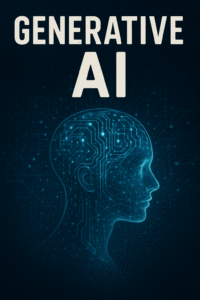Quantum computing is a type of computing that uses quantum mechanics to perform operations on data. Quantum mechanics is a branch of physics that describes the behavior of matter and energy at a very small scale, such as the scale of atoms and subatomic particles. In classical computing, information is processed using bits that can be either 0 or 1. However, in quantum computing, information is processed using quantum bits or qubits, which can represent 0, 1, or a superposition of both states at the same time.
The power of quantum computing comes from the ability of qubits to exist in multiple states simultaneously, allowing for the computation of many possible solutions to a problem at the same time. This is called quantum parallelism. Additionally, quantum computing makes use of a phenomenon known as entanglement, which allows qubits to be correlated with one another in a way that classical bits cannot.
Quantum computing has the potential to solve certain problems that are beyond the capabilities of classical computers, such as breaking encryption codes and simulating complex chemical reactions. However, quantum computers are still in the early stages of development and are currently limited by issues such as noise and decoherence, which can cause errors in calculations.
Quantum computing has the potential to bring significant benefits in a variety of fields due to its ability to perform certain computations much faster than classical computers. Some potential applications of quantum computing include:
- Cryptography: Quantum computers could potentially break current encryption methods, but they could also be used to develop new encryption techniques that are more secure.
- Optimization: Quantum computing can perform optimization calculations much faster than classical computers, making it useful for industries such as logistics, finance, and transportation.
- Machine learning: Quantum computing can help train machine learning models much faster than classical computers, potentially leading to more accurate predictions and better insights.
- Chemistry: Quantum computing can simulate the behavior of molecules and chemical reactions more accurately than classical computers, which could lead to advances in drug discovery and materials science.
- Financial modeling: Quantum computing can be used for risk analysis and portfolio optimization in finance, potentially leading to better investment decisions.
- Artificial intelligence: Quantum computing can potentially accelerate the development of artificial intelligence by making it possible to perform computations that are currently too complex for classical computers.
While quantum computing is still in its early stages, its potential applications are vast and varied, and researchers are continuing to explore its possibilities
As quantum computing continues to develop and mature, a range of job opportunities are emerging in the field. Some of the job roles and opportunities in quantum computing include:
- Quantum Software Engineer: Designing and developing software applications and algorithms for quantum computers.
- Quantum Hardware Engineer: Designing and developing quantum computing hardware components and systems.
- Quantum Information Scientist: Developing theoretical models and algorithms for quantum computing.
- Quantum Researcher: Conducting research in quantum computing and related fields.
- Quantum Data Scientist: Analyzing and interpreting data from quantum computing experiments and simulations.
- Quantum Cryptography Specialist: Designing and implementing secure cryptographic systems using quantum computing principles.
- Quantum Machine Learning Specialist: Developing machine learning algorithms and models that can be run on quantum computers.
- Quantum Applications Specialist: Identifying and developing applications for quantum computing in various industries, such as finance, healthcare, and energy.
- Quantum Business Development Manager: Identifying potential business opportunities and partnerships in the quantum computing industry.
As the field of quantum computing continues to grow and evolve, new job opportunities are likely to emerge. Additionally, many existing job roles in fields such as computer science, physics, and mathematics may also evolve to incorporate quantum computing principles and technologies.




